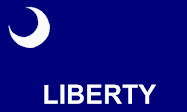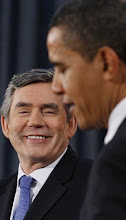Intuition is a very powerful thing, more powerful than intellect, in my opinion. That's had a big impact on my work.
If you just sit and observe, you will see how restless your mind is. If you try to calm it, it only makes it worse, but over time it does calm, and when it does, there's room to hear more subtle things - that's when your intuition starts to blossom and you start to see things more clearly and be in the present more. Your mind just slows down and you see a tremendous expanse in the moment. You see so much more than you could see before. It's a discipline; you have to practice it.
Your thoughts construct patterns like scaffolding in your mind. You are really etching chemical patterns. In most cases, people get stuck in those patterns, just like grooves in a record, and they never get out of them.
If you want to live your life in a creative way, as an artist, you have to not look back too much. You have to be willing to take whatever you've done and whoever you were and throw them away.
The more the outside world tries to force an image of you, the harder it is to continue to be an artist, which is why a lot of times, artists have to say, "Bye. I have to go. I'm going crazy and I'm getting out of here." And they go and hibernate somewhere. Maybe later they re-emerge a little differently.
For most things in life, the range between the best and average is 30% or so. The best airplane flight, the best meal, they may be 30% better than your average one... I realize that A Players like to work with A players, they just didn't like working with C players... My role model was J. Robert Oppenheimer. I read about the type of people he sought for the atom bomb project. I wasn't nearly as good as he was, but that's what I aspired to do.
From the earliest days at Apple, I realized that we thrived when we created intellectual property. If people copied or stole our software, we'd be out of business. If we weren't protected, there'd be no incentive for us to make new software or product designs. If protection of intellectual property begins to disappear, creative companies will disappear or never get started.
I'm one of the few people who understands how producing technology requires intuition and creativity, and how producing something artistic takes real discipline.
The older I get, the more I see how much motivations matter... If you don't love something, you're not going to go the extra mile, work the extra weekend, challenge the status quo as much.
Remembering that I'll be dead soon is the most important tool I've ever encountered to help make the big choices in life. Because almost everything - all external expectations, all pride, all fear of embarrassment or failure - these things fall away in the face of death, leaving only what is truly important. Remembering that you are going to die is the best way I know how to avoid the trap of thinking you have something to lose. You are already naked. There is no reason not to follow your heart.
My passion has been to build an enduring company where people were motivated to make great products. Everything else was secondary. Sure, it was great to make a profit, because it allowed you to make great products. But the products, not the profits, were the motivation... It's a subtle difference, but it ends up meaning everything: the people you hire, who gets promoted, what you discuss in meetings.
Some people say, "Give the customers what they want." But that's not my approach. Our job is to figure out what they're going to want before they do. I think Henry Ford once said, "If I'd asked customers what they wanted, they would have told me, 'A faster horse!'" People do not know what they want until you show it to them. That's why I never rely on market research. Our task is to read things that are not yet on the page.
Edwin Land of Polaroid talked about the intersection of the humanities and science. I like that intersection. There's something magical about that place. There are a lot of people innovating, and that's not the main distinction of my career. The reason Apple resonates with people is that there's a deep current of humanity in our innovation. I think that great artists and great engineers are similar, in that they both have a desire to express themselves... Great artists like Leonardo da Vinci and Michelangelo were also great at science. Michelangelo new a lot about how to quarry stone, not just how to be a sculptor.
People pay us to integrate things for them, because they don't have time to think about this stuff 24/7. If you have an extreme passion for producing great products, it pushes you to be integrated, to connect your hardware and your software and content management. You want to break new ground, so you have to do it yourself. If you want to allow your products to be open to other hardware or software, you have to give up some of your vision.
I hate when people call themselves "entrepreneurs" when what they're really trying to do is launch a startup and then sell or go public, so they can cash in and move on. They're unwilling to do the work it takes to build a real company, which is the hardest part of the business. That's how you really make a contribution and add to the legacy of those who went before you. You build a company that will still stand for something a generation or two from now. That's what Walt Disney did, and Hewlett and Packard, and the people who built Intel. They created a company to last, not just to make money, that's what I want Apple to be.
I don't think I run roughshod over people, but if something sucks, I tell people to their face. It's my job to be honest. I know what I'm talking about, and I usually turn out to be right. That's the culture I tried to create. We are brutally honest with each other... where we are yelling at each other, and it's some of the best times I've ever had. I feel totally comfortable saying "Ron, that store looks like shit" in front of everyone else. Or I might say "God, we really fucked up the engineering on this" in front of the person that's responsible. That's the ante for being in the room...
I was hard on people sometimes, probably harder than I needed to be... But somebody's got to do it. I figured it was my job to make sure that the team was excellent, and if I didn't do it, nobody was going to do it.
You always have to keep pushing to innovate. Dylan could have done protest songs forever... but he didn't. He had to move on, and when he did, by going electric in 1965, he alienated a lot of people. His 1966 Europe tour was his greatest. He would come out and do some acoustic guitar, and the audience loved him. Then he brought out what came to be known as The Band, and they would all do an electric set, and the audience sometimes booed. There was one point where he was about to sing "Like a Rolling Stone" and someone yelled "Judas!" And Dylan then says, "Play it fucking loud!" And they did. The Beatles were the same way. They kept evolving, moving, refining their art. That's what I've tried to do - keep moving. Otherwise, as Dylan says, if your not busy being born, you're busy dying.
What drove me? I think most creative people want to express appreciation for being able to take advantage of the work that's been done by others before us. I didn't invent the language or mathematics I use... It's about trying to express something in the only way that most of us know how - because we can't write Bob Dylan songs or Tom Stoppard plays. We try to use the talents we do have to express our deep feelings, to show our appreciation of all the contributions that came before us, and to add something to that flow. That's what has driven me.
skip to main |
skip to sidebar


















observe, orient, decide, act
Make Perception Great Again

Election 2016
college campus psychosis

Search PerceptionAsReality

Establishment v. Trump





It is easier to deceive a multitude than one man.
-Herodotus
-Herodotus
To hear rightly is the beginning of living rightly.
-Plutarch
-Plutarch
Gonzales Flag

Goliad Flag

Gadsden Flag

Fort Moultrie Flag



smitten

not smitten


support perceptionasreality



